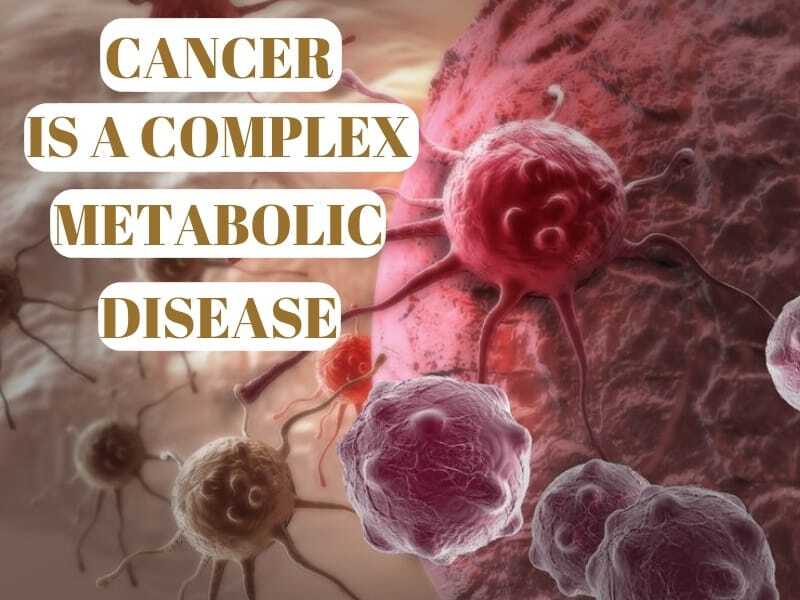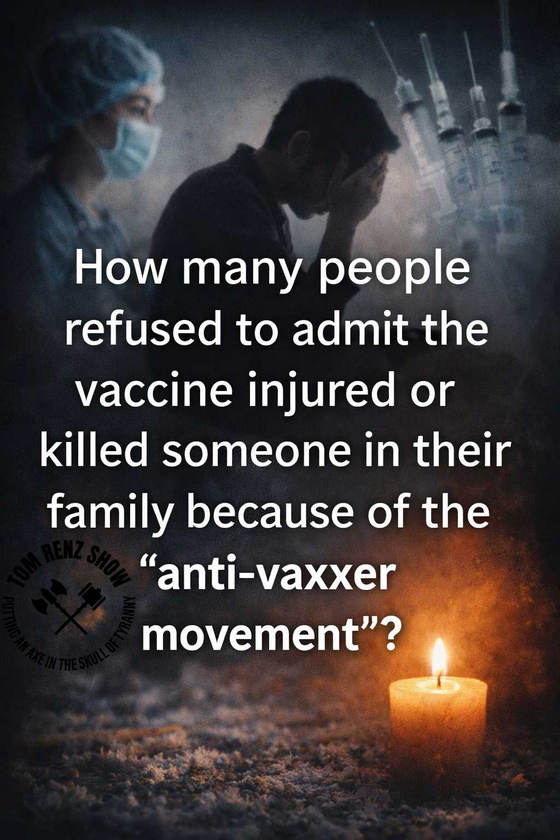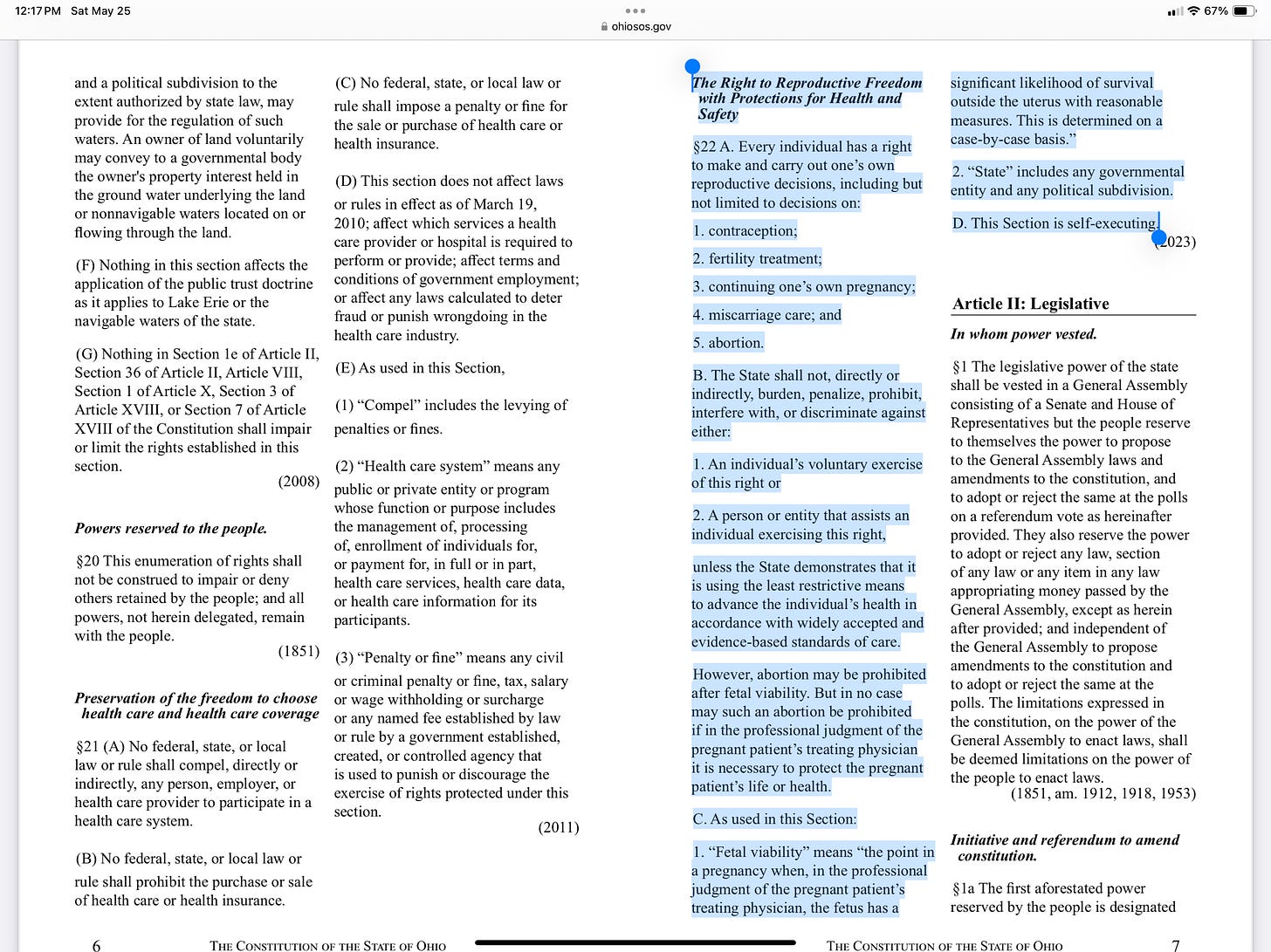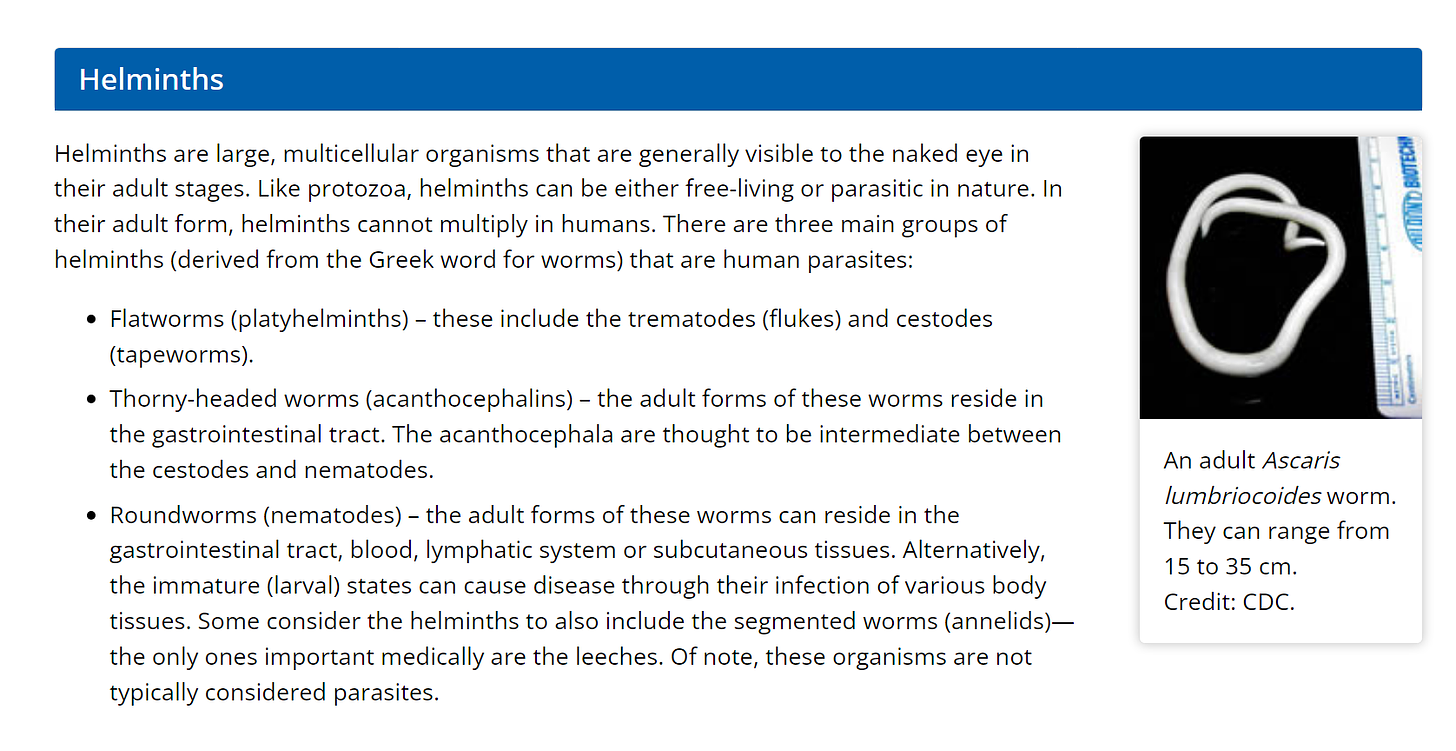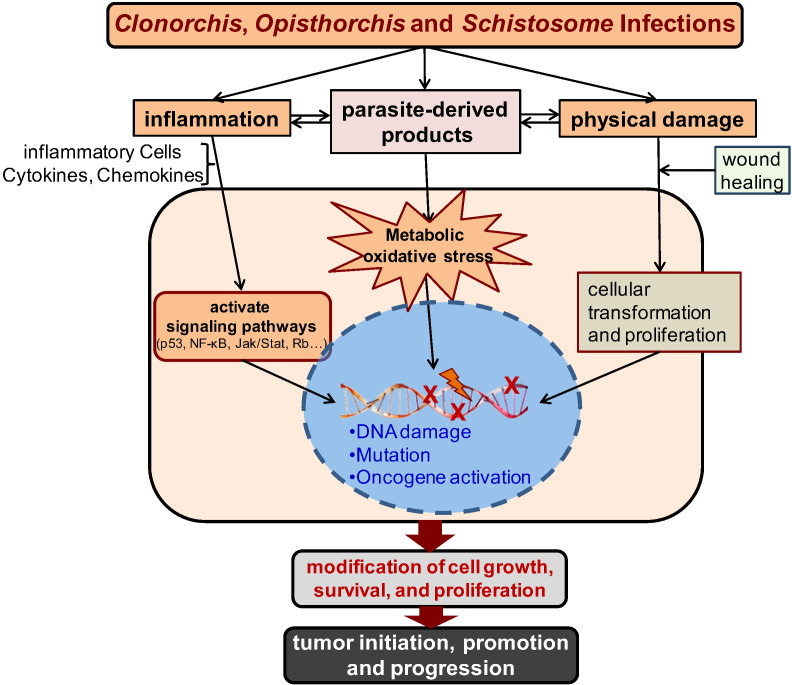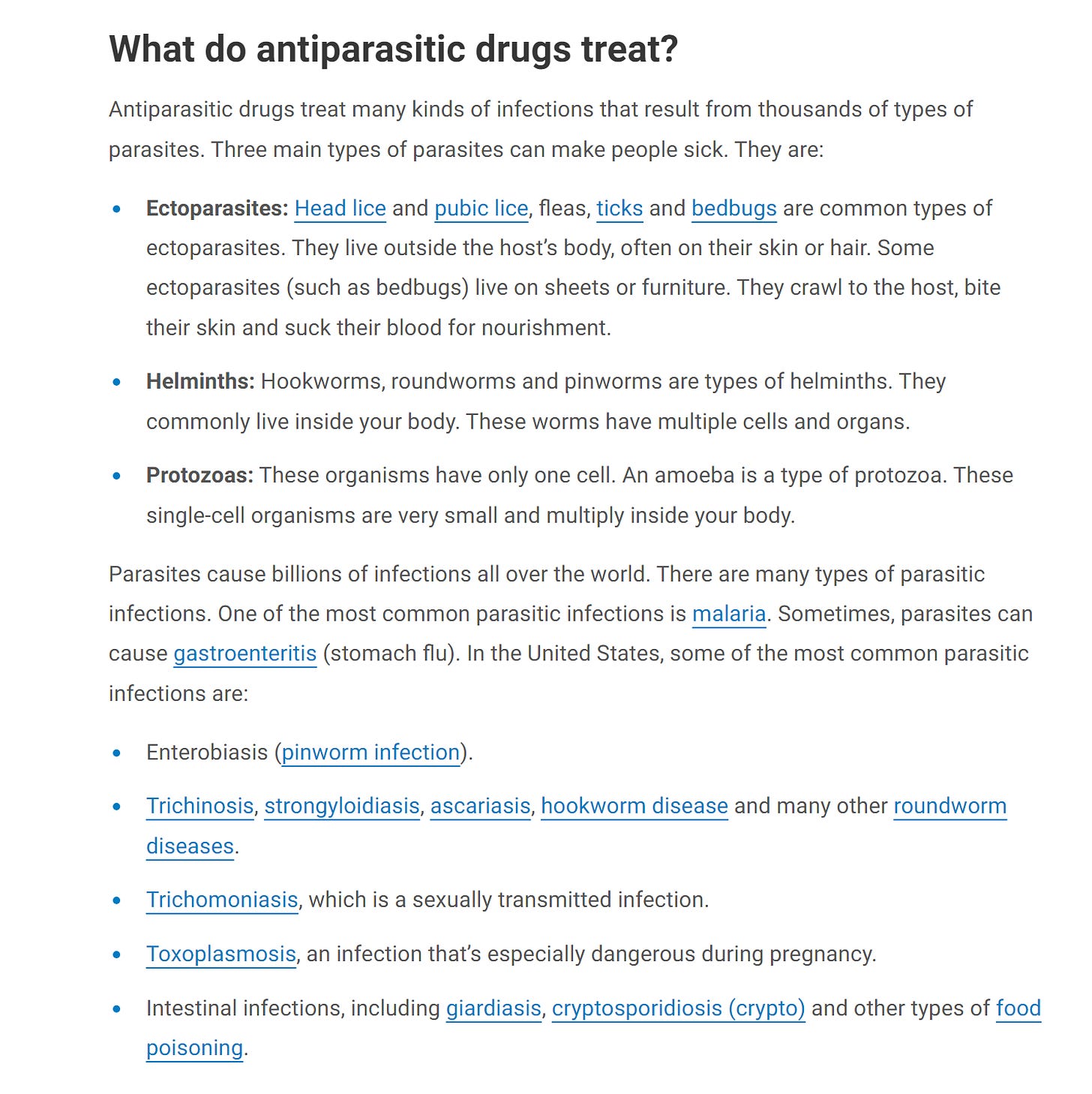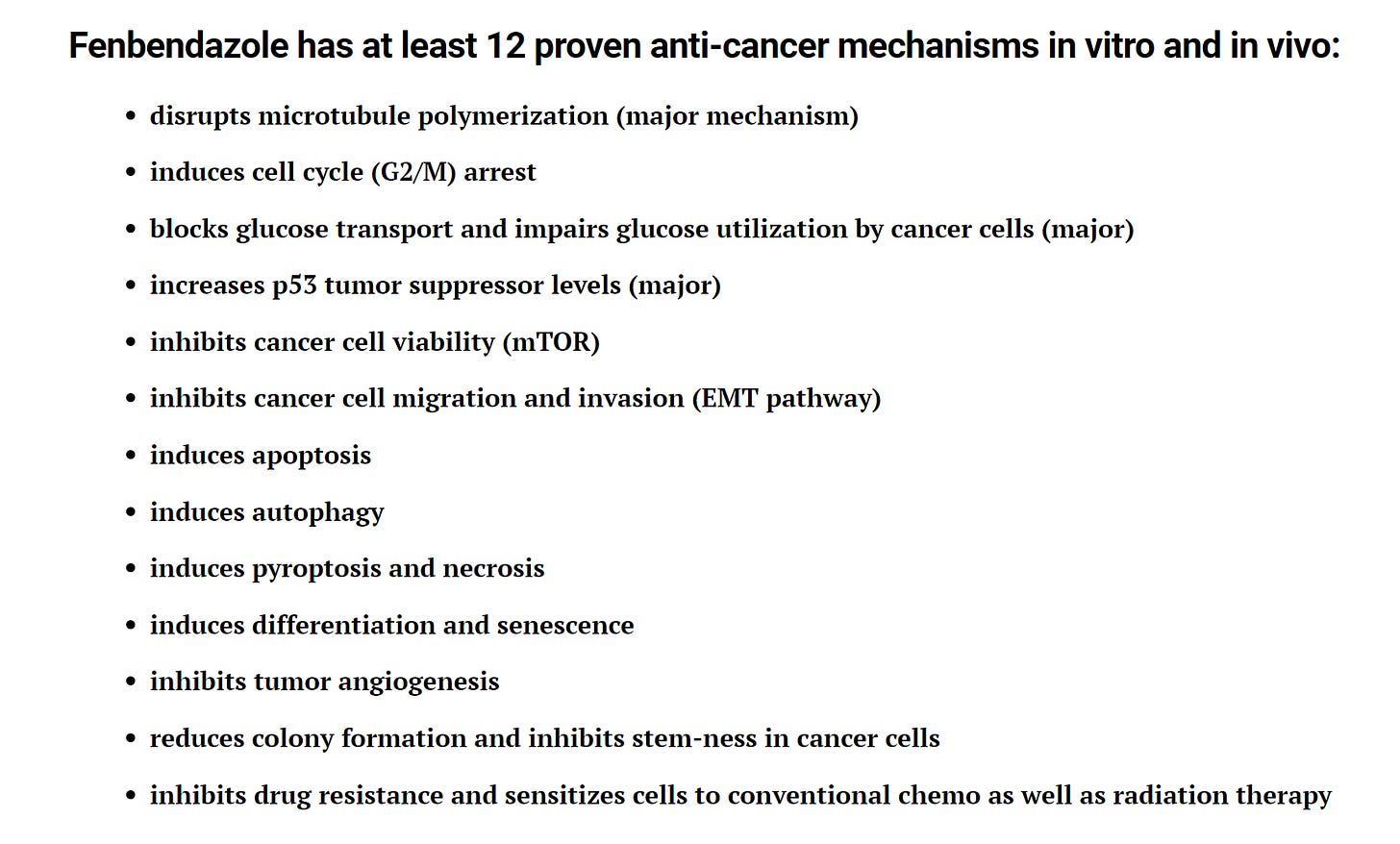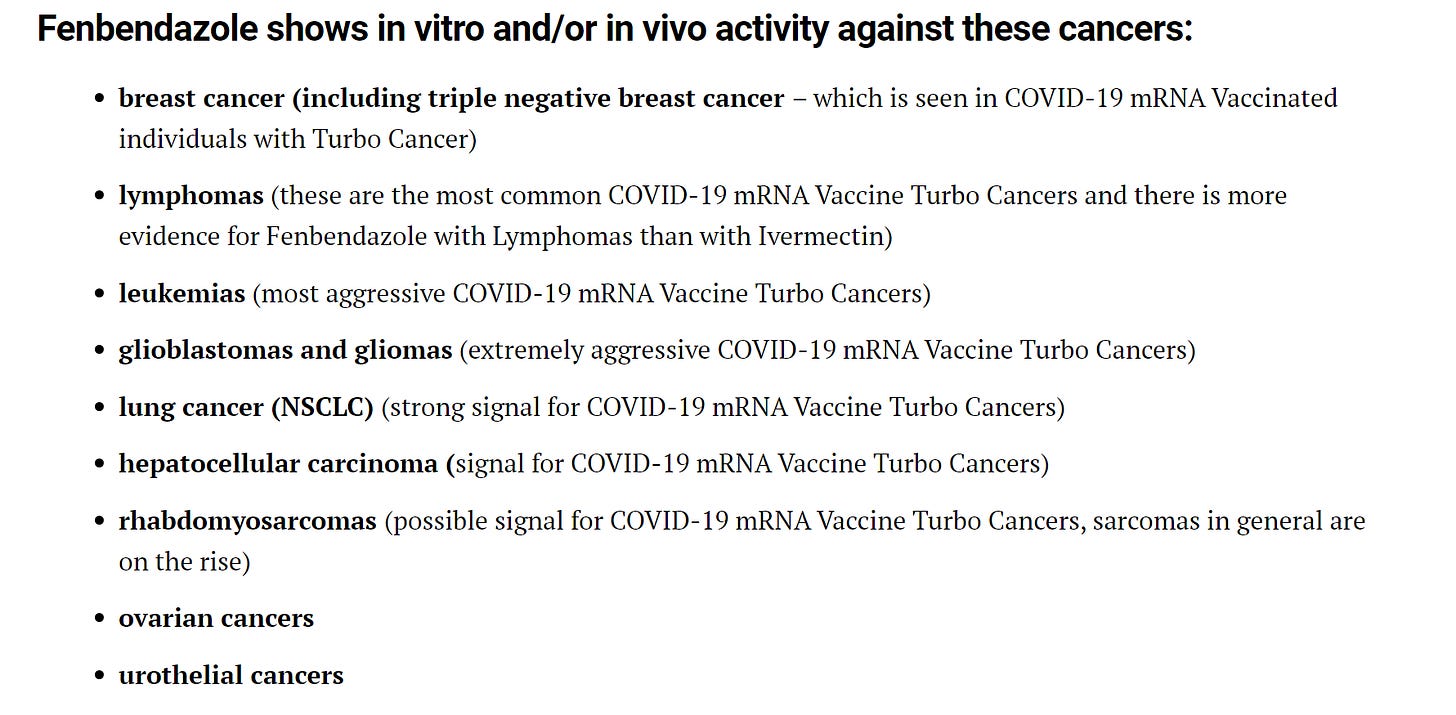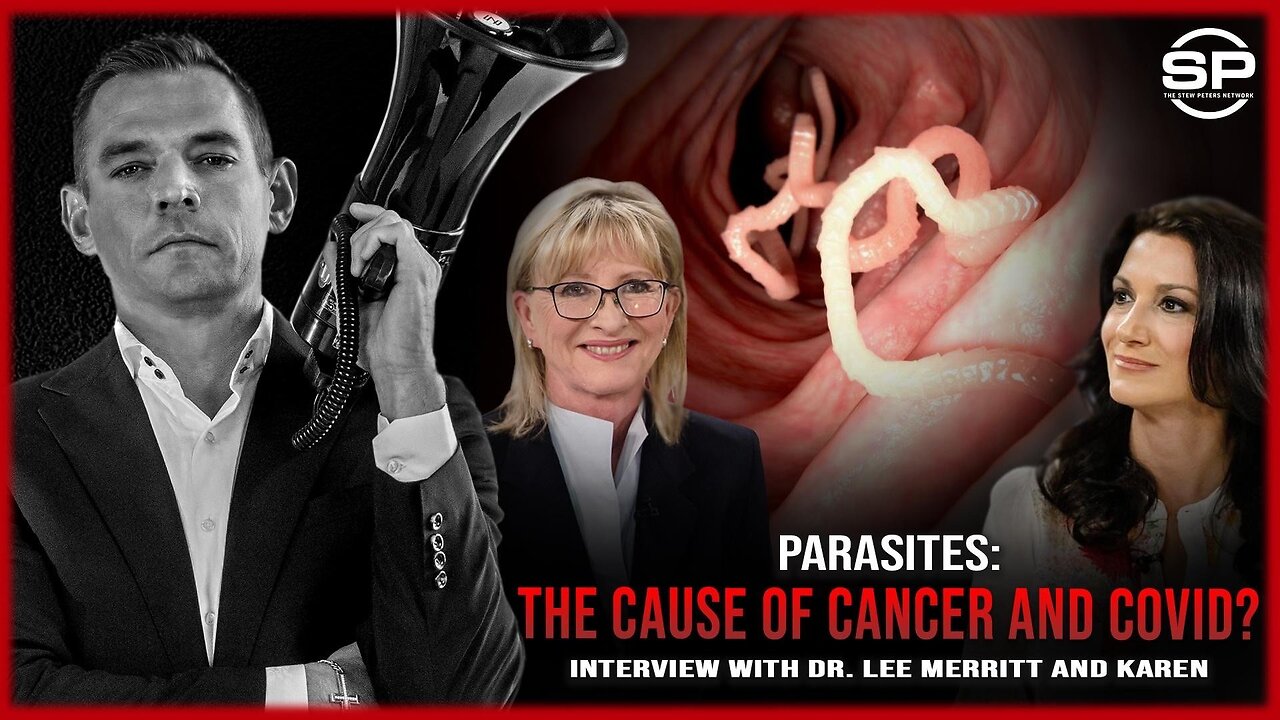Thank you for joining me again as I continue to examine, without bias - the different theories on the origins, development and treatment of cancer. If you missed my previous Substacks in this cancer series, please feel free to check those out here and here.
An increasingly popular, although admittedly not mainstream theory - is that cancer is a metabolic disease. This article is not intended to be a comprehensive presentation of the theory but intended to serve as a basic overview to introduce you to the subject. Much like the theory that some cancers are parasitic in nature, the idea that cancer is a metabolic disease - is not widely examined or acknowledged by the mainstream medical system. Outspoken advocates in support of the theory assert that this approach is not being recognized as an effective alternative to the radiation and chemotherapies that are currently being utilized - because there is little money to be made.
Chemotherapy and radiation bring in billions of dollars in revenue and some experts believe that the financial incentives to continue to recommend these treatments keep the scale tipped in their favor despite the fact that they are extremely toxic. One is a money generating approach, the other is not - so why would they engage in research that could potentially cut into (or decimate) the profits of a multibillion-dollar industry? Further, while chemo and radiation can be very effective, the side effects can cause a number of other issues including an increased likelihood of recurrence of cancer. Cancer does kill and chemo/radiation do frequently work well to stop it but what if there is another way that had fewer side effects? Drugs or supplements that could cure cancer without the need for other drugs to combat their side effects? It is certainly unseemly to discuss but it is inarguable that it would be a financial disaster for those making money from cancer if something like that were to become available.
Many physicians and oncologists are completely unfamiliar with the concept of cancer as a complex metabolic disease. It’s simply not taught, or it’s just dismissed outright. Most cancer research today is focused on gene mutations and the concept of “personalized medicine” in cancer involves the development of drugs and things like mRNA gene therapies. These gene therapies and drugs are being developed - presumably -to target specific mutations that are found in various tumors - with the hope of correcting the disease.
Some experts, like Dr. Thomas Seyfried will tell you that the problem with that is that there are thousands, possibly millions of mutations in tumor cells which makes targeting them a daunting task that comes with toxic adverse effects. Dr. Seyfried received his Ph.D. in Genetics and Biochemistry from the University of Illinois and boasts impressive credentials. He published Cancer as a Metabolic Disease: On the Origin, Management, and Prevention of Cancer and in his book, Dr. Seyfried presents an alternative origin of cancer based on the theories of Dr. Otto Warburg, who found that the root cause of cancer is a combination of low cellular oxygenation (hypoxia) and acidosis. In his “On the Origins of Cancer Cells” publication Warburg summarized that “the cause of cancer is the replacement of the respiration of oxygen in normal body cells by a fermentation of sugar.” Normal body cells meet their energy needs by respiration of oxygen, whereas cancer cells meet their energy needs - in great part - by fermentation.
Warburg showed that cancer cells are fermenters of glucose. Dr. Seyfried expands on that theory and asserts that cancer is a disease of cellular metabolic dysfunction due to damaged mitochondria.

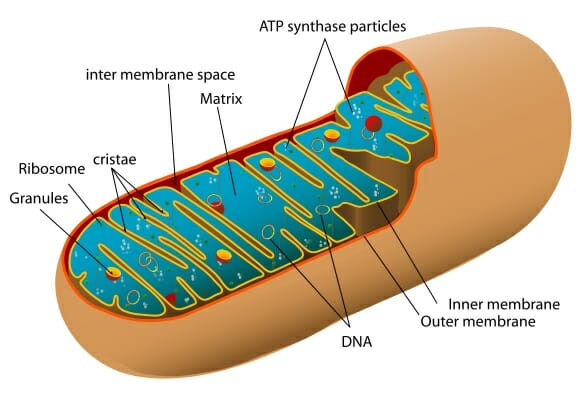
He claims that glucose is metabolized to the point of pyruvate which is then fermented. Almost all cancer cells have this property because tumor cells must ferment either glucose (or amnio acids like glutamine) for survival and growth since they are anaerobic and cannot survive without oxygen.
Dr. Seyfried concludes that cancer is not a genetic disease and that the mutations are merely ‘downstream epiphenomenon of damaged respiration’. Simply put, he asserts that the genetic mutations are red herrings caused by mitochondria that have suffered some sort of insufficiency or damage. If the mitochondria are healthy - you will not get cancer. Different chemicals, radiation, toxins, inflammation, hypoxia, viruses and inherited genes can damage functionality of mitochondria.
Cell Death & Disease published ‘Hypoxia Regulates the Mitochondrial Activity of Hepatocellular Carcinoma Cells through HIF/HEY1/PINK1 Pathway’ and revealed the following:
“Hypoxia is commonly found in cancers. Hypoxia, due to the lack of oxygen (O2) as the electron recipient, causes inefficient electron transfer through the electron transport chain at the mitochondria leading to accumulation of reactive oxygen species (ROS) which could create irreversible cellular damages.”
A 2023 review ‘Hypoxic Microenvironment in Cancer: Molecular Mechanisms and Therapeutic Interventions tells us that ‘hypoxia damages the cellular genome and drives carcinogenesis’.
“Hypoxia plays a central role in cancer progression and resistance to therapy by promoting various changes in the biology of stromal cells in the TME, including immune cells.”
Ask yourself, how much does genetic manipulation (gene therapy) affect the functionality of mitochondria? What is the effect of inserting experimental mRNA (modRNA) into the genes of the recipients and their offspring?
The metabolic theory of cancer claims glucose, oxidative stress, and mitochondrial health affect the onset and spread of the disease. In addition to pointing to new directions of research, Dr. Seyfried elaborates on a non-toxic mode of treatment, therapeutic fasting and a ketogenic diet. The ketogenic diet is a low carb/high fat diet and was originally used as one of the first treatments of epilepsy in children. The ketogenic diet (KD) capitalizes on the inability of the damaged cancer cell mitochondria to metabolize ketones, thus starving them while maintaining healthy cells.
Because cancer cells develop quickly on glucose and glutamine, it has been demonstrated that a ketogenic diet can effectively deprive malignant cells of glucose. Ketogenic diets have a fairly straightforward concept. In the simplest way I can explain it - if glucose serves as the main fuel for cancer, then reducing your consumption of carbohydrates and substituting them with other fuels, like fats, will force your body to enter a state of ketosis. Tumors that are fueled by glucose will have difficulty trying to compete with normal cells for the restricted source of glucose. Tumor cells can’t utilize the ketones for energy like the normal, healthy cells can. The body should be restricted from the primary fuels for the tumor while the body transitions to the ketones to fuel the body. Simply put, if you starve the malignant cells of its fuel, the theory is that it will kill tumor cells.

A paper published by Seyfried et al in BMC ‘Press-pulse: A Novel Therapeutic Strategy for the Metabolic Management of Cancer’ concluded the following:
“Hyperbaric oxygen therapy combined with the calorie restricted ketogenic diet will kill tumor cells through apoptotic and anti-angiogenic mechanisms while also reducing inflammation in the tumor microenvironment and systemically.”
A 2021 NIH publication called ‘Ketogenic Diet in Cancer Prevention and Therapy: Molecular Targets and Therapeutic Opportunities’ documented the following:
“The ketogenic diet (KD), a high-fat and very-low-carbohydrate with adequate amounts of protein, has shown antitumor effects by reducing energy supplies to cells. This low energy supply inhibits tumor growth, explaining the ketogenic diet’s therapeutic mechanisms in cancer treatment.”
A 2015 NIH study entitled ‘Non-Toxic Metabolic Management of Metastatic Cancer in VM Mice: Novel Combination of Ketogenic Diet, Ketone Supplementation, and Hyperbaric Oxygen Therapy’ published some interesting findings.
“Mice receiving the combination therapy demonstrated a marked reduction in tumor growth rate and metastatic spread and lived twice as long as control animals. To further understand the effects of these metabolic therapies, we characterized the effects of high glucose (control), low glucose (LG), ketone supplementation (βHB), hyperbaric oxygen (HBOT), or combination therapy (LG+βHB+HBOT) on VM-M3 cells. Individually and combined, these metabolic therapies significantly decreased VM-M3 cell proliferation and viability. HBOT, alone or in combination with LG and βHB, increased ROS production in VM-M3 cells. This study strongly supports further investigation into this metabolic therapy as a potential non-toxic treatment for late-stage metastatic cancers.”
Drugs like Gleevec and Herceptin target the same metabolic pathway that the ketogenic diet does. The difference is - a ketogenic diet theoretically targets all cancers whereas the drug specific ones - target those pathways only in the individuals with that mutation. Some experts are asking - why use toxic drugs when there is another alternative to do the same thing without toxicity to the body? Why are we attempting to genetically modify people before we attempt something as simple as a ketogenic diet? Please note - these are the experts theories - I’ll get to my thoughts in a moment.
A 2021 NIH paper ‘Ketogenic Diet for Cancer: Critical Assessment and Research Recommendations’ summarizes the strength of evidence of beneficial effects of KD for cancer related outcomes in pre-clinical and clinical studies.
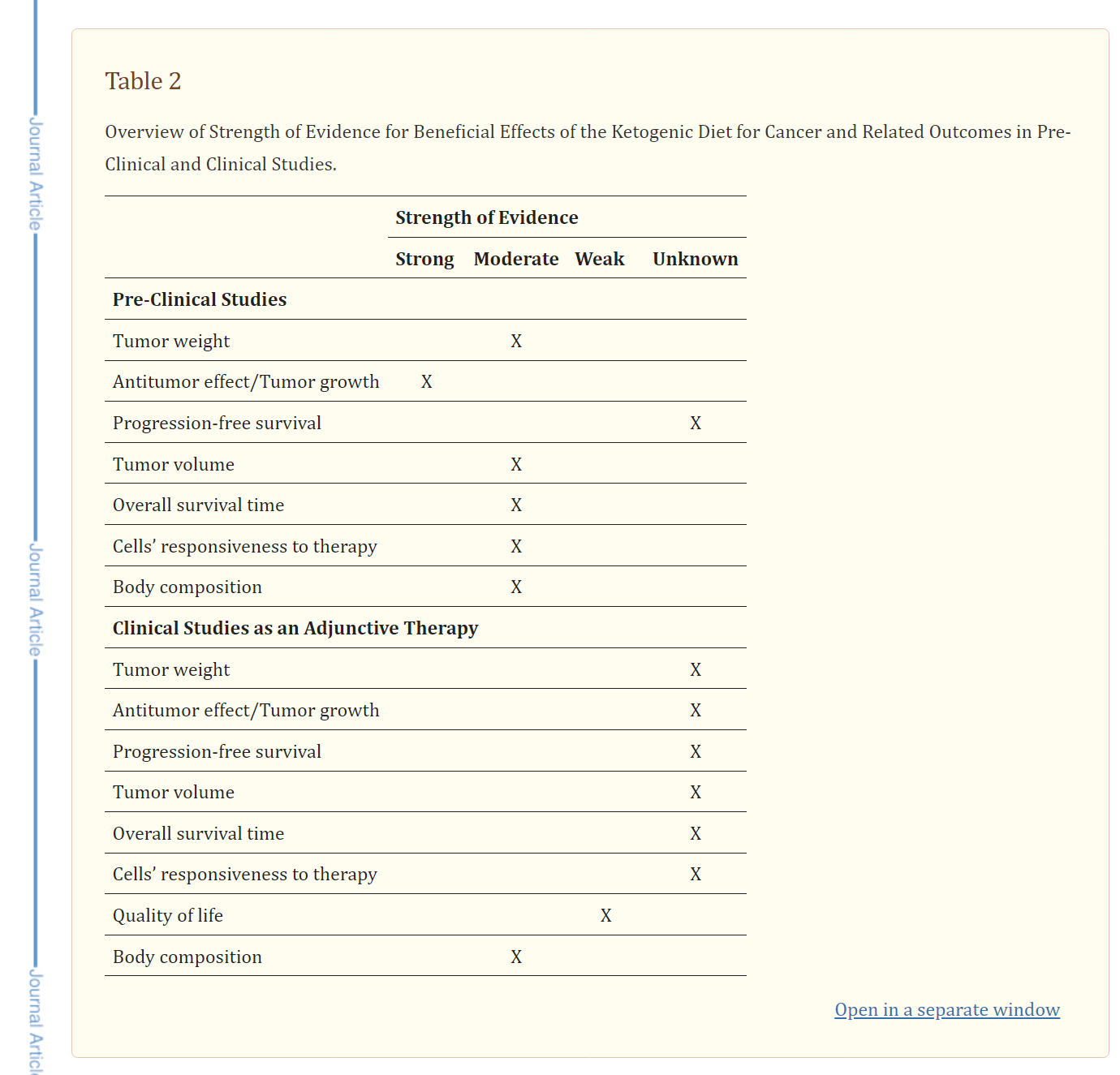
The paper lists the following research recommendations for clinical studies examining the effects of KD on cancer development and progression:
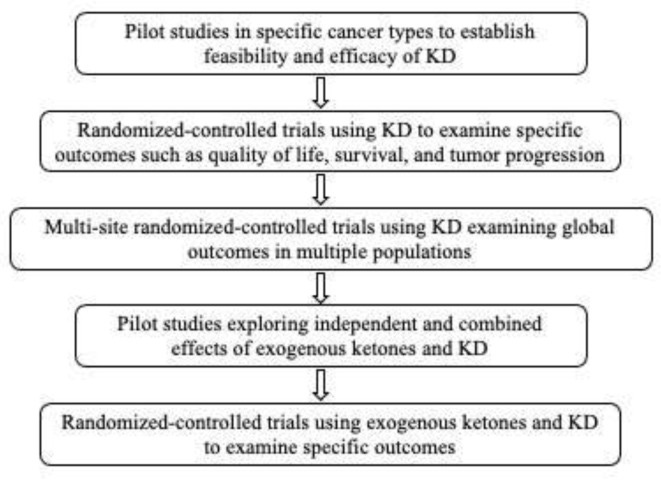
Conduct small, rigorous non-randomized trials with homogeneous patient groups and common cancer sites to assess whether KD produces a “signal” on selected outcomes (particularly those related to response to standard care (e.g., effectiveness, side effects)) that would justify the conduct of larger, randomized-controlled trials.
In randomized-controlled trials, provide sufficient detail of the KD and control diets (ensuring that they are comparable on vitamins, mineral and other nutrients) so they could be replicated by other investigators.
Develop a standardized method to monitor and quantify adherence and tolerance to the KD.
Develop a set of standardized assessments and outcome measures that include the full array of relevant variables (e.g., imaging of tumor characteristics, body composition, quality of life, and survival).
Distinguish trials based on whether they attempt to isolate the unique effects of KD versus those which seek to estimate its effects as an adjunctive therapy.
Examine the effects of exogenous ketones, alone and in conjunction with a KD, to determine whether they have synergistic or additive effects.
Because it is unlikely that KD will cure cancer, trials should focus on whether KD reduces cancer progression or recurrence in those who experience remission through standard care.
It’s worth asking - is progress is not being made in regard to curing cancer because they’re focusing on the wrong things?
Ultimately I believe the metabolic theory, much like the parasitic theory of cancer makes sense but probably does not explain every cancer, nor would it fix every cancer. The reason I say this is that I do not believe we are still dealing with cancer as a natural phenomenon. Cancer as a genetic issue certainly appears credible in many cases. I think many of these cancers stemming from genetic mutations will eventually be understood to have come from the poisons we are putting in our systems today; poisons that did not exist centuries ago.
The mRNA poisons are a great example. These gene therapy poisons and many other things we are putting in our body have a substantial impact on the genetic material and the functionality of our cells. Radiation can cause cellular mutation and every single radio signal and cellular tower in this country emit low levels of radiation and we have not properly studied their cancer causing potential. Modern life is full of things that may account for a major increase in cancer that is truly based on genetic mutation rather than a parasite or metabolic issue… or maybe these things contribute to metabolic issues in some way.
After researching and putting out these articles on cancer and causes I frankly am at the point I believe all three major theories of cancer seem credible. I am also appalled to see that only one of them is studied and that is the theory that makes the money. If we want to understand cancer we need to start by getting money out of the picture. Cancer kills and should not be political and should not be about money - but it is. I think it may be time we do something about that… more to come.
If you’d like to hear more on cancer as a metabolic disease the FLCCC Alliance published a webinar with Dr. Paul Marik and Dr. Thomas Seyfried that you can watch here.
“Billions spent on novel gene-targeting cancer drugs provide a chance to live only 2.4-months longer!”
Dr. Thomas Seyfried
Sources:
Cancer: An Unbiased Overview in Preparation for Our Upcoming War on Cancer (substack.com)
Mitochondria - Definition, Function & Structure | Biology Dictionary
Cancer as A Metabolic Disease - FLCCC Alliance (covid19criticalcare.com)
Ketogenic Diet for Cancer: Critical Assessment and Research Recommendations - PMC (nih.gov)
Herceptin (Trastuzumab): Side Effects, How it Works, and More (breastcancer.org)
Subscribe: Join us on Substack for access to all of Tom's extremely detailed and mostly boring corruption fight research/data/sources/court docs... it's alot.. TomRenz.Substack.com

